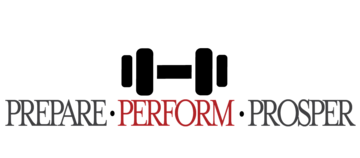Principle and Practice: Two Factors That Transcend Fitness
What works for Bill will not always work for John. What works for Sally will not work for Jessica.
I understand the lore and how tempting it is to want to try a program or diet that worked for someone else but the truth of the matter is
NOBODY ELSE IS YOU BUT YOU
Our bodies respond to stimuli based on principles, but are practiced differently based on a multitude of factors such as your training age, age in general, experience, genetics, and motivation. While some respond to training slightly more drastic than others, the fact is we all function on the same basic principles of physiology. With the previous statement, I will break down the normal cases in the form of principle for weight loss, muscle gain, and strength.
The goal of this article is to differentiate the difference between principle and practice to ensure that you are not washed away by the bombardment of fitness noise that is propagated currently.
No matter what situation or scenario the two fundamentals are:
Progressive Overload- You must challenge your body incrementally and consistently over time.
Manage Caloric Intake- If you want to lose weight, you must decrease calories. If you want to gain muscle you must increase calories. If you want to fuel your performance, you must adequately provide energy.
Training
The principle of training is Progressive Overload. In short, progressive overload is the systematic increase of work to achieve a specific adaptation. In reference to a previous article, Training Volume is King, I illustrated that the number one driver of adaptation is training volume. Through periodization, planned distribution of work throughout a period of time, is the most intelligent way to to align your training.
When you're reading a Men's fitness magazine or following your Instagram famous fitness icon understand that what they do works for THEM and is not tailored to YOU and your current capabilities. Going from not attending the gym to killing it 6 times a week may sound like a good idea but the odds are you will most likely crash. A sensible approach is the best approach.
Therefore when you see something like:
Squat Everyday
German Volume Training
The Big Ass Arm Guide
The Booty Blaster Program
Ask yourself, is this drastically more than what I am doing now? Does this insane training program sound sustainable? Doing ton's of amount of work in the gym just cause you saw it in a Instagram post will not work for you. Pushing to accomplish this is like trying to work your whole 40-hour work week in two-days. Would you do that?
Quite frankly, if you're working out on your own without a trainer and look back a month ago ask yourself these two questions. Do I see progress? Am I able to do more than I previously could? If the answer is yes then guess what, you have achieved progressive overload and is working for you in practice that applies to YOU. Start where you are and GROW FROM THERE.
Nutrition
Trying to lose weight?
Eat Less Calories
Trying to gain muscle?
Eat more Calories
I understand there are instances out there that supports that weight loss in a caloric deficit is not achieved. Noted, but that piece of nominal information is so far few and in between that I could theorize with a great deal of confidence that it does not apply to you. The literature absolutely supports the claims above. All programs manipulate these variables depending on the goal and individual. If you eat less calories and exercise you will drop pounds. If you eat more calories and exercise you will add pounds. Macro-nutrient ratios play an immense role in body composition BUT handling calories is the first step and is the most important priority. Worrying about how much protein you can have at one meal, if fruit is going to make me gain weight, or any other minutiae is simply not a concern at the beginning.
To Conclude
Losing weight and achieve goals in fitness is not an easy task. If it was, I would not have a career. Yet there is a lot of information out there that can be confusing nonetheless making the process much muddier than it has to be. I understand "The Best Diet in The World" or "90-Day Transformation" sounds tantalizing but these practices are set up for failure. If you start with the basics and apply the principles of Progressive Overload and Managing Caloric Intake you will later learn the other tips that will push you further in obtaining results. Understanding just these two principles alone will guide you much further to an understanding what your body needs so you can appropriately attack your goals.
